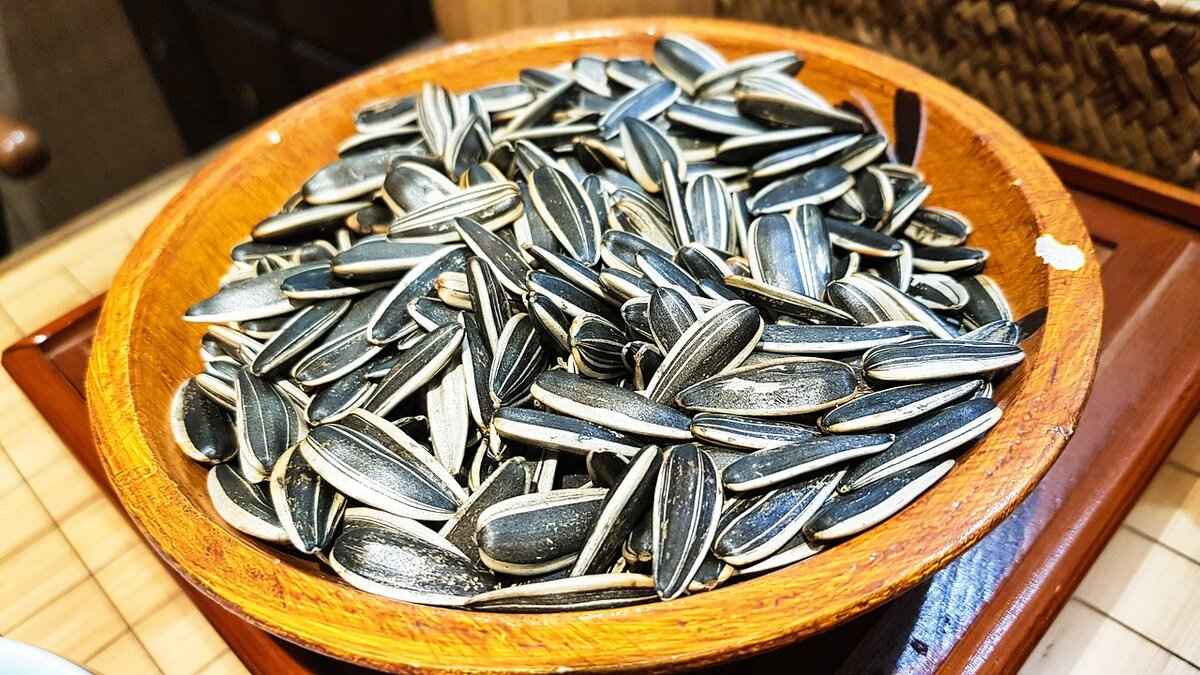This article explores the numerous health benefits of consuming chia seeds in water, detailing their nutritional value, hydration properties, and potential impact on overall wellness.
What Are Chia Seeds?
Chia seeds are tiny, nutrient-dense seeds derived from the Salvia hispanica plant. These seeds are celebrated for their impressive nutritional profile, being rich in omega-3 fatty acids, fiber, and antioxidants. Their versatility and health benefits have led to their classification as a superfood.
How Do Chia Seeds Benefit Hydration?
When soaked in water, chia seeds can absorb up to 12 times their weight, forming a gel-like substance. This property is particularly beneficial for maintaining hydration levels in the body, especially during physical activities or hot weather.
What Nutrients Are Found in Chia Seeds?
Chia seeds are packed with essential nutrients, including:
- Protein
- Fiber
- Calcium
- Magnesium
- Iron
This rich nutrient profile enhances their status as a superfood and contributes significantly to overall dietary intake.
High Fiber Content
The high fiber content in chia seeds aids digestion and promotes a feeling of fullness. This can be especially beneficial for weight management and improving gut health.
Soluble vs. Insoluble Fiber
Chia seeds contain both soluble and insoluble fiber, which together support digestive health and help regulate blood sugar levels effectively.
Impact on Satiety
The gel-like consistency of chia seeds when mixed with water can increase satiety, potentially leading to reduced calorie intake and aiding in weight loss efforts.
Rich in Antioxidants
Chia seeds are loaded with antioxidants, which help combat oxidative stress in the body. This reduces inflammation and lowers the risk of chronic diseases.
How Do Chia Seeds Support Heart Health?
The omega-3 fatty acids found in chia seeds can enhance heart health by:
- Lowering cholesterol levels
- Reducing blood pressure
- Decreasing inflammation in the cardiovascular system
Omega-3 Fatty Acids Explained
Chia seeds are one of the best plant-based sources of omega-3 fatty acids, which are crucial for maintaining heart health and minimizing the risk of heart disease.
Cholesterol-Lowering Effects
Regular consumption of chia seeds can lead to improved cholesterol levels, essential for maintaining cardiovascular health and preventing heart-related issues.
Can Chia Seeds Aid in Weight Management?
Incorporating chia seeds into your diet may assist with weight management due to their ability to absorb water and expand in the stomach, promoting a feeling of fullness.
Appetite Control
The high fiber and protein content in chia seeds can help regulate appetite, making it easier to stick to a healthy eating plan and avoid overeating.
Low-Calorie Snack Option
Chia seeds are low in calories yet high in nutrients, making them a smart addition to smoothies, salads, or as a healthy snack alternative.
How to Incorporate Chia Seeds in Your Diet?
There are various ways to enjoy chia seeds, including:
- Adding them to smoothies
- Mixing them into oatmeal
- Soaking them in water to create a refreshing drink
Chia Seed Water Recipe
A simple recipe involves mixing chia seeds with water and letting them sit for 10-15 minutes. This results in a nutritious drink that can be flavored with lemon or honey for added taste.
Using Chia Seeds in Cooking
Chia seeds can also be used in baking, as a thickening agent, or as an egg substitute in vegan recipes, enhancing the nutritional profile of your meals.

What Are Chia Seeds?
Chia seeds are small, nutrient-dense seeds derived from the Salvia hispanica plant, which is native to Mexico and Guatemala. These tiny seeds have gained immense popularity as a superfood due to their impressive nutritional profile. Rich in omega-3 fatty acids, fiber, and antioxidants, chia seeds provide numerous health benefits that can enhance overall wellness.
Chia seeds are a powerhouse of essential nutrients. They contain:
- Protein: Chia seeds are a good source of plant-based protein, making them an excellent addition to vegetarian and vegan diets.
- Fiber: With a high fiber content, chia seeds aid in digestion and promote a feeling of fullness.
- Calcium: Essential for bone health, chia seeds provide a plant-based source of calcium.
- Magnesium: This mineral is crucial for various bodily functions, including muscle and nerve function.
- Iron: Chia seeds are rich in iron, which is vital for transporting oxygen in the blood.
One of the remarkable features of chia seeds is their ability to absorb water. When soaked, they can absorb up to 12 times their weight, forming a gel-like substance. This property helps to:
- Maintain hydration: The gel can help keep the body hydrated, especially during physical activities.
- Support digestion: The gel-like consistency aids in the smooth functioning of the digestive system.
The combination of nutrients found in chia seeds contributes to their superfood status. They are:
- Rich in antioxidants: Chia seeds contain antioxidants that combat oxidative stress and inflammation.
- Heart-healthy: The omega-3 fatty acids in chia seeds support cardiovascular health by reducing cholesterol levels and inflammation.
- Weight management: Their high fiber content promotes satiety, which can help control appetite and support weight loss efforts.
Incorporating chia seeds into your daily routine is simple and versatile. Here are some popular methods:
- Chia Seed Water: Mix chia seeds with water and let them sit for 10-15 minutes. This creates a refreshing drink that can be flavored with lemon or honey.
- In Smoothies: Add chia seeds to your favorite smoothie for an extra nutrient boost.
- In Baking: Use chia seeds in baking recipes or as an egg substitute in vegan dishes.
In summary, chia seeds are not only a nutritional powerhouse but also an incredibly versatile ingredient that can enhance your diet. Their numerous health benefits make them a valuable addition to any meal plan.

How Do Chia Seeds Benefit Hydration?
Chia seeds have gained immense popularity in the health and wellness community, particularly for their remarkable ability to enhance hydration. When these tiny seeds are soaked in water, they can absorb up to 12 times their weight, resulting in a gel-like substance. This unique property not only makes chia seeds an excellent addition to various drinks but also plays a crucial role in maintaining hydration levels in the body, especially during physical activities.
Chia seeds are an exceptional source of hydration due to their high water absorption capacity. This gel-like consistency they form when soaked can help slow down the absorption of water in the digestive system, leading to prolonged hydration. This is particularly beneficial for athletes or individuals engaging in strenuous physical activities, as it can help maintain energy levels and prevent dehydration.
Unlike many other seeds, chia seeds are rich in soluble fiber, which contributes to their ability to absorb water. This soluble fiber forms a gel when it comes into contact with liquid, creating a barrier that slows digestion and helps maintain a steady release of energy. This mechanism is beneficial not only for hydration but also for regulating blood sugar levels.
Maintaining proper hydration is essential for overall health. Dehydration can lead to fatigue, headaches, and decreased physical performance. Moreover, when engaging in intense workouts, the body loses not just water but also electrolytes through sweat. Chia seeds, being a source of essential minerals like calcium, magnesium, and potassium, can help replenish these lost electrolytes when consumed in water.
- Chia Seed Water: A simple method involves soaking chia seeds in water for 10-15 minutes. This not only creates a refreshing drink but also enhances hydration.
- Infused Drinks: For added flavor, chia seeds can be mixed with lemon juice, coconut water, or herbal teas, making them more palatable while still providing hydration benefits.
- Smoothies: Adding soaked chia seeds to smoothies can enhance both the texture and nutritional content, making it a perfect hydrating snack.
In addition to their hydration benefits, chia seeds are packed with nutrients. They contain a high amount of omega-3 fatty acids, protein, and antioxidants, all of which contribute to overall health. The combination of hydration and nutrient density makes chia seeds a superb choice for anyone looking to enhance their diet.
In summary, incorporating chia seeds into your daily routine can significantly improve your hydration levels, especially during physical activities. Their unique ability to absorb water, combined with their nutritional profile, makes them an excellent addition to a health-conscious diet. By consuming chia seeds in various forms, you can enjoy a refreshing and hydrating experience while reaping the numerous health benefits they offer.

What Nutrients Are Found in Chia Seeds?
Chia seeds, often hailed as a superfood, are tiny powerhouses of nutrition that have gained immense popularity in recent years. They are derived from the Salvia hispanica plant, native to Mexico and Guatemala. These seeds are not only versatile but also incredibly rich in essential nutrients, making them a valuable addition to any diet.
Chia seeds are packed with a variety of nutrients that contribute to their health benefits. Here’s a closer look at what makes them so special:
- Protein: Chia seeds are a great source of plant-based protein, providing about 4 grams per 2 tablespoons. This makes them an excellent option for vegetarians and vegans looking to increase their protein intake.
- Fiber: With approximately 11 grams of fiber per ounce, chia seeds are an excellent source of dietary fiber. This high fiber content aids in digestion and promotes a healthy gut.
- Calcium: Chia seeds contain about 18% of the recommended daily intake of calcium per ounce, which is essential for maintaining strong bones and teeth.
- Magnesium: These seeds are rich in magnesium, providing around 30% of the recommended daily value. Magnesium plays a vital role in over 300 biochemical reactions in the body.
- Iron: Chia seeds offer a plant-based source of iron, which is crucial for transporting oxygen in the blood and preventing anemia.
- Omega-3 Fatty Acids: One of the standout features of chia seeds is their high content of omega-3 fatty acids, particularly alpha-linolenic acid (ALA). This essential fatty acid is known for its heart health benefits.
- Antioxidants: Chia seeds are rich in antioxidants, which help combat oxidative stress and protect the body from free radicals.
The combination of these nutrients not only enhances overall dietary intake but also contributes to various health benefits. For instance, the high fiber content helps regulate blood sugar levels and supports weight management by promoting feelings of fullness.
Moreover, the omega-3 fatty acids found in chia seeds are linked to improved heart health, as they can lower cholesterol levels and reduce inflammation. This makes chia seeds an excellent food choice for those looking to maintain cardiovascular health.
In addition to their nutritional benefits, chia seeds are incredibly easy to incorporate into your diet. They can be added to smoothies, yogurt, oatmeal, or even baked goods. When soaked in water, they expand and form a gel-like substance, which can be used as a thickening agent or a healthy pudding base.
In summary, chia seeds are a nutrient-dense superfood that provides a wide array of health benefits. Their rich composition of protein, fiber, calcium, magnesium, iron, omega-3 fatty acids, and antioxidants makes them an excellent addition to a balanced diet. Whether you are looking to boost your nutrient intake or explore new culinary options, chia seeds are a versatile and healthful choice.
High Fiber Content
Chia seeds have gained immense popularity in recent years, and for good reason. Among their many health benefits, the stands out as a key feature that can significantly enhance digestive health and support weight management. In this section, we will delve deeper into how the fiber in chia seeds contributes to these benefits and why incorporating them into your diet can be a game-changer.
The fiber found in chia seeds is primarily soluble fiber, which dissolves in water to form a gel-like substance. This gel not only helps to slow down digestion but also aids in the smooth passage of food through the gastrointestinal tract. As a result, chia seeds can help prevent constipation and promote regular bowel movements.
One of the most remarkable properties of chia seeds is their ability to absorb water—up to 12 times their weight. When consumed, they expand in the stomach, creating a sensation of fullness. This can be particularly beneficial for those looking to manage their weight, as it may help reduce overall calorie intake. By including chia seeds in your meals or snacks, you can control your appetite more effectively.
- Soluble Fiber: This type of fiber helps to lower cholesterol levels and stabilize blood sugar, making it a vital component for heart health.
- Insoluble Fiber: This fiber adds bulk to your stool, promoting regularity and preventing digestive issues.
The unique gel-like consistency that chia seeds develop when mixed with water not only aids in digestion but also enhances the feeling of satiety. When you feel full, you are less likely to snack excessively or overeat during meals. This can be particularly advantageous for those on a weight loss journey, as it encourages healthier eating habits without the feeling of deprivation.
In addition to their high fiber content, chia seeds are rich in essential nutrients such as protein, omega-3 fatty acids, and various vitamins and minerals. These nutrients work synergistically to support overall health, including heart health and improved metabolism. Furthermore, the antioxidants present in chia seeds help combat oxidative stress, contributing to a healthier body.
Incorporating chia seeds into your daily routine is simple and versatile. Here are a few easy ways to enjoy their benefits:
- Add them to smoothies for a nutrient boost.
- Sprinkle them on salads for added texture and health benefits.
- Mix them into oatmeal or yogurt for a filling breakfast.
- Soak them in water or juice to create a refreshing drink.
With their impressive health benefits, particularly due to their high fiber content, chia seeds are an excellent addition to any diet. Whether you are looking to improve your digestive health, manage your weight, or simply enhance your overall nutrition, chia seeds can provide the support you need.
Soluble vs. Insoluble Fiber
Chia seeds have gained immense popularity as a health food, and for good reason. One of their standout features is their impressive fiber content, which includes both soluble and insoluble fiber. Understanding the differences between these two types of fiber is crucial for appreciating how chia seeds can enhance your digestive health and regulate blood sugar levels.
Soluble fiber dissolves in water, forming a gel-like substance. This type of fiber is known for its ability to slow digestion, which can lead to a more gradual release of glucose into the bloodstream. This characteristic is particularly beneficial for individuals looking to manage their blood sugar levels. Foods high in soluble fiber, like chia seeds, can help lower cholesterol levels and improve heart health by binding to cholesterol in the digestive system and facilitating its excretion.
Insoluble fiber, on the other hand, does not dissolve in water. Instead, it adds bulk to the stool and aids in moving food through the digestive tract. This type of fiber is essential for maintaining regular bowel movements and preventing constipation. The presence of insoluble fiber in chia seeds can help promote a healthy digestive system and prevent digestive disorders.
The combination of soluble and insoluble fiber in chia seeds creates a powerful duo that supports digestive health. While soluble fiber helps regulate blood sugar and cholesterol levels, insoluble fiber ensures that the digestive system functions smoothly. Together, they can enhance feelings of fullness, which can be beneficial for weight management.
- Improved Digestion: The blend of soluble and insoluble fiber promotes healthy digestion and regular bowel movements.
- Blood Sugar Regulation: Soluble fiber helps stabilize blood sugar levels, making chia seeds an excellent choice for those with diabetes.
- Heart Health: Both types of fiber contribute to lower cholesterol levels, reducing the risk of heart disease.
- Weight Management: The high fiber content promotes satiety, helping to control appetite and reduce overall calorie intake.
Incorporating chia seeds into your diet is simple and versatile. Here are some practical ways to enjoy their fiber benefits:
- Add to Smoothies: Blend chia seeds into your favorite smoothie for a nutrient boost.
- Mix into Yogurt: Stir chia seeds into yogurt for added texture and fiber.
- Use in Baking: Include chia seeds in baked goods like muffins and bread for an extra health kick.
- Prepare Chia Pudding: Soak chia seeds in almond milk or coconut milk overnight to create a delicious pudding.
In conclusion, the unique combination of soluble and insoluble fiber found in chia seeds makes them a valuable addition to any diet. By understanding their properties and benefits, you can take full advantage of what chia seeds have to offer for your digestive health and overall well-being.
Impact on Satiety
The gel-like consistency of chia seeds when mixed with water plays a crucial role in enhancing feelings of fullness, which can be particularly beneficial for those looking to manage their weight. When chia seeds are soaked in water, they can absorb a significant amount of liquid, expanding in size and forming a thick, gel-like substance. This unique property not only helps to keep you hydrated but also promotes a sense of satiety.
Research suggests that foods that increase satiety can help reduce overall calorie intake. By incorporating chia seeds into your diet, you may find it easier to control your appetite and resist the temptation to snack between meals. The expansion of chia seeds in the stomach creates a physical barrier that signals to your brain that you are full, which can help curb overeating.
Additionally, the high fiber content in chia seeds contributes to their satiating effects. Fiber slows down digestion, allowing for a more gradual release of nutrients into the bloodstream. This slow digestion process not only helps maintain stable energy levels but also prolongs feelings of fullness after a meal. When you consume foods rich in fiber, such as chia seeds, you are likely to feel satisfied for a longer period, which can be particularly beneficial for weight loss efforts.
Moreover, chia seeds are low in calories yet high in essential nutrients, making them an excellent choice for those seeking to lose weight without feeling deprived. They are packed with protein and healthy fats, which further contribute to their satiating properties. Adding chia seeds to your meals can enhance the nutritional profile of your diet while helping you manage your caloric intake effectively.
Incorporating chia seeds into your daily routine can be simple and enjoyable. You can add them to smoothies, yogurt, or oatmeal, or even create a refreshing chia seed water drink. The versatility of chia seeds makes them an easy addition to a variety of meals and snacks, allowing you to reap their benefits without much effort.
For those concerned about weight management, understanding the impact of food on satiety is essential. By choosing foods that promote fullness, such as chia seeds, you can create a balanced diet that supports your health and wellness goals. The gel-like consistency of chia seeds not only aids in hydration but also plays a pivotal role in appetite control, making them a smart choice for anyone looking to enhance their diet.
In summary, the ability of chia seeds to absorb water and expand in the stomach can significantly increase satiety. This, combined with their high fiber and nutrient content, makes them a valuable addition to any weight management strategy. By incorporating chia seeds into your meals, you can enjoy the benefits of increased fullness, reduced calorie intake, and improved overall health.
Rich in Antioxidants
Chia seeds are increasingly recognized for their remarkable health benefits, particularly their high antioxidant content. These tiny seeds, derived from the Salvia hispanica plant, are not just a trendy superfood; they are packed with essential nutrients that promote overall wellness. One of the standout features of chia seeds is their rich supply of antioxidants, which play a crucial role in protecting the body from oxidative stress.
Antioxidants are compounds that help neutralize free radicals in the body. Free radicals are unstable molecules that can cause cellular damage, leading to inflammation and various chronic diseases. By consuming foods rich in antioxidants, such as chia seeds, you can significantly reduce oxidative stress and its harmful effects.
Chia seeds are loaded with antioxidants like quercetin, chlorogenic acid, and caffeic acid. These compounds work synergistically to combat oxidative stress by:
- Neutralizing Free Radicals: The antioxidants in chia seeds can effectively neutralize free radicals, reducing the risk of cellular damage.
- Reducing Inflammation: Chronic inflammation is linked to numerous diseases, including heart disease and cancer. The anti-inflammatory properties of chia seeds can help mitigate these risks.
- Supporting Immune Function: A strong immune system is essential for overall health. Antioxidants help strengthen immune responses, making the body more resilient against infections.
Regular consumption of chia seeds, due to their high antioxidant levels, may lower the risk of several chronic diseases:
- Heart Disease: Antioxidants help lower cholesterol levels and reduce inflammation, which are key factors in heart health.
- Diabetes: The anti-inflammatory effects can improve insulin sensitivity and help regulate blood sugar levels.
- Cancer: Certain antioxidants have been shown to inhibit cancer cell growth and promote apoptosis (programmed cell death) in cancerous cells.
To reap the full benefits of chia seeds, consider the following methods of incorporation:
- Chia Seed Pudding: Mix chia seeds with your choice of milk or a dairy-free alternative and let it sit overnight. Add fruits for an added antioxidant boost.
- Smoothies: Blend chia seeds into your favorite smoothies. This not only enhances the nutritional profile but also adds a pleasant texture.
- Salads and Bowls: Sprinkle chia seeds over salads or grain bowls for a nutritious crunch.
While many foods contain antioxidants, chia seeds offer a unique combination of benefits:
- High Nutrient Density: Chia seeds are not only rich in antioxidants but also provide omega-3 fatty acids, fiber, and essential minerals.
- Versatility: They can be easily incorporated into various dishes, making them a convenient option for enhancing your diet.
- Plant-Based Source: For those following a vegan or vegetarian diet, chia seeds are an excellent plant-based source of antioxidants.
In summary, the antioxidant properties of chia seeds make them a powerful addition to any diet. By including these tiny seeds in your meals, you can help combat oxidative stress, reduce inflammation, and potentially lower the risk of chronic diseases. Their versatility and nutrient density further solidify their status as a superfood worth incorporating into your daily routine.

How Do Chia Seeds Support Heart Health?
Chia seeds, derived from the Salvia hispanica plant, have gained immense popularity due to their impressive health benefits, particularly for heart health. This article will delve into how these tiny seeds can significantly contribute to maintaining a healthy cardiovascular system.
The omega-3 fatty acids found in chia seeds play a crucial role in promoting heart health. These essential fats are known for their ability to lower cholesterol levels, reduce blood pressure, and decrease inflammation within the cardiovascular system.
Omega-3 fatty acids are a type of polyunsaturated fat that is vital for numerous bodily functions. Chia seeds are one of the richest plant-based sources of these fatty acids, particularly alpha-linolenic acid (ALA). Regular intake of omega-3s can lead to significant health advantages, including:
- Lowering Bad Cholesterol: Omega-3s help reduce levels of low-density lipoprotein (LDL) cholesterol, which is often referred to as “bad” cholesterol. This is crucial for maintaining a healthy heart.
- Reducing Blood Pressure: Studies indicate that omega-3 fatty acids can help lower blood pressure, which is a significant risk factor for heart disease.
- Decreasing Inflammation: Chronic inflammation is linked to various heart conditions. Omega-3s possess anti-inflammatory properties that can help mitigate this risk.
Incorporating chia seeds into your diet can lead to improved cholesterol profiles. The soluble fiber in chia seeds forms a gel-like substance in the digestive tract, which can bind to cholesterol and help eliminate it from the body. This process not only lowers cholesterol levels but also promotes overall cardiovascular health.
Research suggests that regular consumption of chia seeds can contribute to better blood pressure regulation. The high omega-3 content, combined with the seeds’ ability to absorb water, helps maintain vascular flexibility and reduces the strain on the heart.
Chia seeds are also rich in antioxidants, which help combat oxidative stress in the body. Oxidative stress is known to contribute to the development of heart disease. By neutralizing free radicals, antioxidants in chia seeds can reduce the risk of heart-related issues.
To reap the heart health benefits of chia seeds, consider the following tips:
- Add chia seeds to your morning smoothies for a nutrient boost.
- Mix them into yogurt or oatmeal for added texture and health benefits.
- Soak chia seeds in water to create a refreshing drink that can be flavored with fruits or honey.
In summary, chia seeds are a powerhouse of nutrients, particularly omega-3 fatty acids, which can significantly enhance heart health. By incorporating these seeds into your daily diet, you can take proactive steps towards improving your cardiovascular well-being.
Omega-3 Fatty Acids Explained
Omega-3 fatty acids are essential fats that play a critical role in maintaining overall health. Unlike some other fats, our bodies cannot produce omega-3s on their own, making it vital to obtain them through diet. One of the best plant-based sources of these beneficial fatty acids is chia seeds, which have gained popularity for their numerous health benefits.
Omega-3 fatty acids are a type of polyunsaturated fat, which is known for its heart-healthy properties. The three main types of omega-3s include:
- ALA (Alpha-linolenic acid): Found primarily in plant sources like chia seeds, flaxseeds, and walnuts.
- EPA (Eicosapentaenoic acid): Found in fatty fish such as salmon and mackerel.
- DHA (Docosahexaenoic acid): Also found in fatty fish, DHA is crucial for brain health.
Omega-3 fatty acids offer a wide range of health benefits, including:
- Heart Health: Omega-3s can lower triglyceride levels, reduce blood pressure, and decrease the risk of heart disease.
- Brain Function: DHA is vital for brain development and function, potentially reducing the risk of cognitive decline.
- Anti-Inflammatory Properties: Omega-3s help reduce inflammation in the body, which is linked to various chronic diseases.
Chia seeds are an excellent source of ALA, making them a perfect addition to a plant-based diet. Just two tablespoons of chia seeds provide about 5,000 mg of ALA, which is more than the daily recommended intake for most adults. This makes chia seeds a convenient and nutrient-dense option for those looking to increase their omega-3 intake.
Research suggests that omega-3 fatty acids may help with weight management by:
- Reducing Appetite: Omega-3s can increase feelings of fullness, which may lead to lower calorie intake.
- Boosting Metabolism: Omega-3s can help enhance metabolic rates, aiding in weight loss efforts.
Incorporating chia seeds into your diet is easy and versatile. Here are some practical ways to enjoy them:
- Add chia seeds to smoothies for a nutrient boost.
- Mix them into oatmeal or yogurt for added texture and nutrition.
- Soak chia seeds in water or juice to create a refreshing drink.
- Use chia seeds as an egg substitute in baking by mixing them with water.
While omega-3 fatty acids are generally safe for most people, it’s essential to consume them in moderation. Excessive intake may lead to potential side effects, such as:
- Increased bleeding risk, especially for those on blood-thinning medications.
- Gastrointestinal issues like diarrhea or bloating when consumed in large amounts.
In conclusion, chia seeds are a powerhouse of omega-3 fatty acids, offering numerous health benefits. By adding chia seeds to your diet, you can enhance your intake of these essential fats, promoting heart health, brain function, and overall well-being.
Cholesterol-Lowering Effects
Cholesterol is a significant factor in cardiovascular health, and maintaining optimal levels is crucial for preventing heart disease and related complications. The consumption of chia seeds has gained attention for their potential to positively influence cholesterol levels. This article delves into the of chia seeds, backed by scientific insights and nutritional benefits.
Chia seeds are rich in omega-3 fatty acids, which are known for their heart-healthy properties. These essential fats play a vital role in lowering LDL (low-density lipoprotein) cholesterol, often referred to as “bad” cholesterol. By incorporating chia seeds into your diet, you can effectively reduce the risk of plaque buildup in the arteries, which is a primary contributor to heart disease.
- High Fiber Content: Chia seeds are an excellent source of soluble fiber, which can help lower cholesterol levels by binding to bile acids in the digestive system. This process forces the body to use cholesterol to replace the bile acids, effectively reducing overall cholesterol levels.
- Antioxidant Properties: The antioxidants present in chia seeds combat oxidative stress, which can contribute to inflammation and heart disease. By reducing inflammation, chia seeds support overall cardiovascular health.
- Plant-Based Omega-3s: Chia seeds are one of the richest plant-based sources of omega-3 fatty acids, specifically alpha-linolenic acid (ALA). Regular intake of ALA is associated with lower cholesterol levels and improved heart health.
Incorporating chia seeds into your daily routine is easy and delicious. Here are some practical ways to enjoy their benefits:
- Chia Seed Pudding: Mix chia seeds with your choice of milk or yogurt, sweeten with honey or maple syrup, and let it sit overnight. This creates a nutritious breakfast or snack option.
- Smoothies: Add a tablespoon of chia seeds to your favorite smoothie for an extra boost of nutrients.
- Salads and Soups: Sprinkle chia seeds on top of salads or stir them into soups for added texture and health benefits.
Several studies have highlighted the positive effects of chia seeds on cholesterol levels. For instance, a study published in the American Journal of Clinical Nutrition found that participants who consumed chia seeds experienced significant reductions in total cholesterol and LDL cholesterol levels. This evidence supports the idea that chia seeds can be a beneficial addition to a heart-healthy diet.
While chia seeds are generally safe for most people, it’s important to consume them in moderation. Due to their high fiber content, excessive intake may lead to digestive issues such as bloating or gas. It is advisable to start with a small amount and gradually increase your intake.
In summary, regular consumption of chia seeds can lead to improved cholesterol levels, which is essential for maintaining cardiovascular health and preventing heart-related issues. By incorporating these nutrient-dense seeds into your diet, you can take proactive steps toward better heart health.

Can Chia Seeds Aid in Weight Management?
Chia seeds, derived from the Salvia hispanica plant, have gained popularity not just as a superfood but also as a potential ally in weight management. Their unique properties make them a valuable addition to a balanced diet.
Incorporating chia seeds into your diet may assist with weight management due to their remarkable ability to absorb water. When chia seeds are soaked, they can expand up to 12 times their weight, forming a gel-like substance. This expansion in the stomach promotes a feeling of fullness, which can be crucial for those looking to control their appetite.
The high fiber content in chia seeds plays a significant role in enhancing satiety. Each serving of chia seeds contains approximately 10 grams of fiber, which can slow down digestion and prolong feelings of fullness. This means that by consuming chia seeds, you may naturally reduce your calorie intake.
Yes! Chia seeds are a low-calorie snack option that can easily replace less healthy snacks. For instance, when mixed with water, they create a nutritious drink that not only hydrates but also curbs hunger. This makes chia seeds an excellent choice for those who tend to snack frequently.
- Rich in Omega-3 Fatty Acids: Essential for heart health.
- High in Protein: Supports muscle maintenance and repair.
- Loaded with Antioxidants: Helps combat oxidative stress.
- Contains Essential Minerals: Such as calcium, magnesium, and iron.
Adding chia seeds to your meals can be simple and enjoyable. Here are some practical ways to include them:
1. Mix chia seeds into smoothies for added texture and nutrition.2. Stir them into oatmeal or yogurt for a satisfying breakfast.3. Use them as a topping for salads or desserts.4. Create a refreshing chia seed drink by soaking them in water with a splash of lemon juice.
While chia seeds are generally safe for most people, it’s essential to consume them with adequate water to prevent any digestive discomfort. Some individuals may experience bloating or gas if they consume too many seeds at once. It’s recommended to start with a small amount and gradually increase your intake.
In summary, chia seeds can be a beneficial addition to your weight management strategy. Their ability to absorb water and expand in the stomach promotes a feeling of fullness, while their high fiber and nutrient content supports overall health. By incorporating chia seeds into your daily routine, you may find it easier to maintain a balanced diet and achieve your weight goals.
Appetite Control
When it comes to maintaining a healthy diet, plays a crucial role. One of the most effective natural solutions for managing hunger is incorporating chia seeds into your daily routine. These tiny seeds are not only versatile but also packed with nutrients that can help you feel fuller for longer.
The secret behind chia seeds lies in their unique composition. They are rich in both fiber and protein, two components known for their ability to promote satiety. When consumed, chia seeds can absorb a significant amount of water, expanding in size and forming a gel-like substance. This process not only slows down digestion but also helps to keep you feeling full, making it easier to resist the temptation of unhealthy snacks.
The combination of fiber and protein in chia seeds is particularly beneficial for appetite regulation. Here’s how:
- Fiber: Chia seeds are an excellent source of both soluble and insoluble fiber. Soluble fiber forms a gel in the stomach, which slows the passage of food and helps maintain stable blood sugar levels. This can prevent sudden cravings and energy dips.
- Protein: The protein content in chia seeds contributes to the feeling of fullness. Protein takes longer to digest compared to carbohydrates, which helps prolong satiety and reduces the likelihood of overeating.
Research suggests that incorporating chia seeds into meals can significantly enhance feelings of fullness. For instance, a study published in the European Journal of Clinical Nutrition found that participants who consumed chia seeds experienced reduced hunger levels compared to those who did not. This effect may be attributed to the seeds’ ability to expand in the stomach, creating a sense of fullness that discourages further eating.
Integrating chia seeds into your diet is simple and can be done in various ways:
- Chia Pudding: Combine chia seeds with your choice of milk or yogurt and let them soak overnight. The result is a delicious pudding that can be topped with fruits or nuts.
- Smoothies: Add a tablespoon of chia seeds to your morning smoothie for an extra boost of nutrients and satiety.
- Salads: Sprinkle chia seeds on top of salads for added texture and nutritional value.
While chia seeds are generally safe for most people, it’s essential to consume them in moderation. Overeating chia seeds can lead to digestive discomfort due to their high fiber content. It’s advisable to gradually increase your intake to allow your digestive system to adjust.
Incorporating chia seeds into your meals can be an effective strategy for managing appetite and supporting your weight management goals. Their high fiber and protein content, combined with their ability to expand in the stomach, make them a powerful ally in your journey towards healthier eating habits. Whether you choose to enjoy them in smoothies, puddings, or salads, chia seeds offer a nutritious and satisfying addition to any diet.
Low-Calorie Snack Option
Chia seeds have gained popularity as a nutritious superfood due to their impressive health benefits and versatility in various dishes. Among their many advantages, one of the most notable is their ability to serve as a . This article delves into why chia seeds are an excellent choice for those looking to maintain a healthy diet while enjoying flavorful snacks.
Chia seeds are not only low in calories but also high in essential nutrients, making them an ideal choice for anyone seeking to enhance their diet. With approximately 138 calories per ounce, they provide a rich source of fiber, protein, and healthy fats without the guilt of traditional snacks.
Incorporating chia seeds into your diet can be effortless. Here are some practical ways to enjoy them:
- Smoothies: Add a tablespoon of chia seeds to your favorite smoothie for an extra nutrient boost.
- Salads: Sprinkle chia seeds on salads for added texture and health benefits.
- Snacks: Mix chia seeds with yogurt or cottage cheese for a satisfying snack.
The unique properties of chia seeds contribute to their effectiveness as a snack option. When soaked in liquid, chia seeds can absorb up to 12 times their weight, forming a gel-like consistency that helps you feel full. This gel formation not only aids in hydration but also promotes a sense of satiety, making it less likely for you to overindulge in other snacks.
Yes, incorporating chia seeds into your daily routine can assist in weight management. Their high fiber content slows digestion, which helps maintain stable blood sugar levels and reduces cravings. The combination of fiber and protein in chia seeds makes them an excellent choice for those looking to control their appetite.
Unlike many processed snacks that are high in sugars and unhealthy fats, chia seeds offer a nutrient-dense alternative. They provide:
- Omega-3 fatty acids: Essential for heart health.
- Antioxidants: Help combat oxidative stress in the body.
- Minerals: Such as calcium, magnesium, and iron, which are vital for overall health.
Creating snacks with chia seeds is simple and can be tailored to your taste preferences. Here’s a quick recipe for a Chia Seed Pudding:
Ingredients:- 1/4 cup chia seeds- 1 cup almond milk (or any milk of choice)- 1 tablespoon honey or maple syrup (optional)- Fresh fruits for toppingInstructions:1. In a bowl, mix chia seeds with almond milk and sweetener.2. Stir well and let it sit for about 10-15 minutes until it thickens.3. Top with fresh fruits and enjoy!
Chia seeds are not only a but also a powerhouse of nutrients that can enhance your overall health. By incorporating them into your diet, you can enjoy a variety of delicious and satisfying snacks that support your wellness journey.

How to Incorporate Chia Seeds in Your Diet?
Incorporating chia seeds into your diet can be a delightful and nutritious experience. These tiny seeds are not only versatile but also packed with essential nutrients that can enhance your overall health. Below, we explore various methods to enjoy chia seeds, ensuring you can easily add them to your daily meals.
There are numerous ways to incorporate chia seeds into your meals, making them a convenient addition to your diet. Here are some popular methods:
- Smoothies: Adding chia seeds to your smoothies is a fantastic way to boost their nutritional content. Simply blend your favorite fruits, vegetables, and a tablespoon of chia seeds for a creamy texture and added fiber.
- Oatmeal: Stirring chia seeds into your morning oatmeal not only enhances its health benefits but also provides a satisfying crunch. Let them soak in for a few minutes to absorb the liquid and expand.
- Chia Pudding: Create a delicious chia pudding by mixing chia seeds with milk (dairy or plant-based) and sweeteners like honey or maple syrup. Refrigerate overnight for a quick breakfast or snack option.
- Salads: Sprinkle chia seeds over salads for an extra crunch and a nutrient boost. They can add texture and flavor without overwhelming the dish.
- Baked Goods: Incorporate chia seeds into your baking recipes, such as muffins or bread, to enhance their nutritional profile. They can also serve as a binding agent in vegan recipes.
- Chia Seed Water: Soaking chia seeds in water creates a refreshing drink. Mix a tablespoon of chia seeds with a glass of water, let it sit for 10-15 minutes, and enjoy. You can add lemon or honey for flavor.
Chia seed water is not only hydrating but also offers various health benefits. The seeds absorb water, forming a gel-like consistency that can help you stay hydrated, especially during physical activities. This drink is low in calories and can be flavored to your liking, making it a perfect alternative to sugary beverages.
Absolutely! Chia seeds are incredibly versatile and can be used in various cooking methods:
- Thickening Agent: Use chia seeds as a natural thickening agent for soups and sauces. When blended, they can create a smooth texture without the need for flour or cornstarch.
- Egg Substitute: For those following a vegan diet, chia seeds can replace eggs in recipes. Mix one tablespoon of chia seeds with three tablespoons of water, let it sit until it forms a gel, and use it in your baking.
- Energy Bars: Make homemade energy bars by combining chia seeds with nuts, oats, and dried fruits. This snack is perfect for a quick energy boost.
In summary, incorporating chia seeds into your diet can be both enjoyable and beneficial. With their numerous health benefits and versatility in cooking, these tiny seeds can easily become a staple in your kitchen.
Chia Seed Water Recipe
is a simple yet effective way to incorporate the numerous health benefits of chia seeds into your daily routine. This drink not only hydrates but also provides a wealth of nutrients that can enhance your overall well-being. Here’s how to create this nutritious beverage and explore its advantages.
To prepare chia seed water, you will need:
- 2 tablespoons of chia seeds
- 1 cup of water (approximately 240 ml)
- Optional: a squeeze of lemon juice or a teaspoon of honey for flavor
Instructions:
- In a glass or a jar, combine the chia seeds with the water.
- Stir the mixture well to prevent the chia seeds from clumping together.
- Allow the mixture to sit for 10-15 minutes. During this time, the chia seeds will absorb the water and expand, forming a gel-like consistency.
- If desired, add lemon juice or honey to taste. Stir again before consuming.
This drink can be consumed at any time of the day, making it a versatile addition to your diet.
Chia seed water is not only refreshing but also packed with nutrients. Here are some reasons to include it in your daily routine:
- Hydration: The gel-like texture of chia seed water helps maintain hydration levels, especially during hot weather or after workouts.
- Rich in Nutrients: Chia seeds are a powerhouse of essential nutrients, including omega-3 fatty acids, fiber, protein, and antioxidants.
- Weight Management: The high fiber content promotes a feeling of fullness, which can help control appetite and reduce overall calorie intake.
- Digestive Health: The soluble fiber in chia seeds aids digestion and supports gut health.
While the basic recipe is delicious on its own, you can customize your chia seed water with various flavors:
- Fruit-Infused Water: Add slices of your favorite fruits such as strawberries, oranges, or cucumber for a refreshing twist.
- Herbal Infusions: Mix in fresh herbs like mint or basil for an aromatic experience.
- Spiced Chia Water: A dash of cinnamon or ginger can add warmth and flavor.
Experimenting with different flavors can make this nutritious drink even more enjoyable.
Incorporating chia seed water into your daily regimen can be easy:
- Prepare a batch in the morning and keep it in the refrigerator for a quick hydration option throughout the day.
- Use it as a base in smoothies or juices for an added nutrient boost.
- Replace sugary beverages with chia seed water to support healthier drinking habits.
By making chia seed water a regular part of your diet, you can enjoy its numerous health benefits while staying hydrated and energized.
Using Chia Seeds in Cooking
is a versatile and nutritious way to enhance your meals. These tiny seeds, packed with nutrients, can be incorporated into various recipes, providing not only health benefits but also unique textures and flavors. Whether you are a seasoned chef or a beginner in the kitchen, chia seeds can elevate your culinary creations.
Chia seeds can be a fantastic addition to your baking repertoire. When ground into a powder, they can be mixed into flour to increase the nutritional value of your baked goods. For instance, adding chia seeds to bread, muffins, or pancakes boosts the fiber content and provides essential fatty acids.
When mixed with liquids, chia seeds swell and form a gel-like consistency. This property makes them an excellent thickening agent for soups, sauces, and smoothies. By using chia seeds instead of traditional thickeners like cornstarch, you not only enhance the texture but also add a wealth of nutrients.
For those following a vegan diet or with egg allergies, chia seeds can serve as a perfect egg substitute. To replace one egg, mix 1 tablespoon of chia seeds with 2.5 tablespoons of water and let it sit for about 10-15 minutes until it forms a gel. This mixture can be used in cookies, cakes, and other recipes, allowing you to maintain moisture and binding properties without using eggs.
- In Smoothies: Add a tablespoon of chia seeds to your favorite smoothie for an extra nutrient boost.
- In Oatmeal: Stir chia seeds into your morning oatmeal for added texture and health benefits.
- In Salads: Sprinkle chia seeds on salads for a crunchy topping that adds fiber and healthy fats.
- In Energy Bars: Use chia seeds in homemade energy bars for a nutritious snack on the go.
Incorporating chia seeds into your cooking not only enhances flavor and texture but also significantly boosts the nutritional profile of your meals. They are rich in omega-3 fatty acids, protein, fiber, and essential minerals like calcium and magnesium. This makes them an excellent choice for anyone looking to improve their overall health.
Absolutely! Chia seeds can be used to create delicious and healthy desserts. For example, chia pudding is a popular treat made by soaking chia seeds in almond milk or coconut milk, sweetened with honey or maple syrup, and topped with fruits and nuts. This dessert is not only tasty but also packed with nutrients.
In conclusion, the versatility of chia seeds in cooking is undeniable. From baking to thickening and as an egg substitute, they can enhance the nutritional value of your meals significantly. By experimenting with chia seeds in your recipes, you can enjoy both delicious flavors and numerous health benefits.
Frequently Asked Questions
- What are the health benefits of drinking chia seed water?
Drinking chia seed water can boost hydration, aid digestion, and provide essential nutrients like omega-3 fatty acids and antioxidants. It’s a refreshing way to enhance your overall wellness!
- How do I prepare chia seed water?
Simply mix 1-2 tablespoons of chia seeds with a glass of water. Let it sit for about 10-15 minutes until it forms a gel-like consistency. You can add flavor with lemon juice or honey if you like!
- Can chia seeds help with weight loss?
Absolutely! Chia seeds can absorb water and expand in your stomach, promoting a feeling of fullness. Their high fiber content also helps control appetite, making it easier to stick to your weight management goals.
- Are there any side effects of consuming chia seeds?
While chia seeds are generally safe, consuming them in excessive amounts may lead to digestive discomfort. It’s best to start with a small quantity and gradually increase your intake.
- Can I use chia seeds in cooking?
Yes! Chia seeds are versatile and can be added to smoothies, baked goods, or even used as a thickening agent. They also serve as a great egg substitute in vegan recipes!














